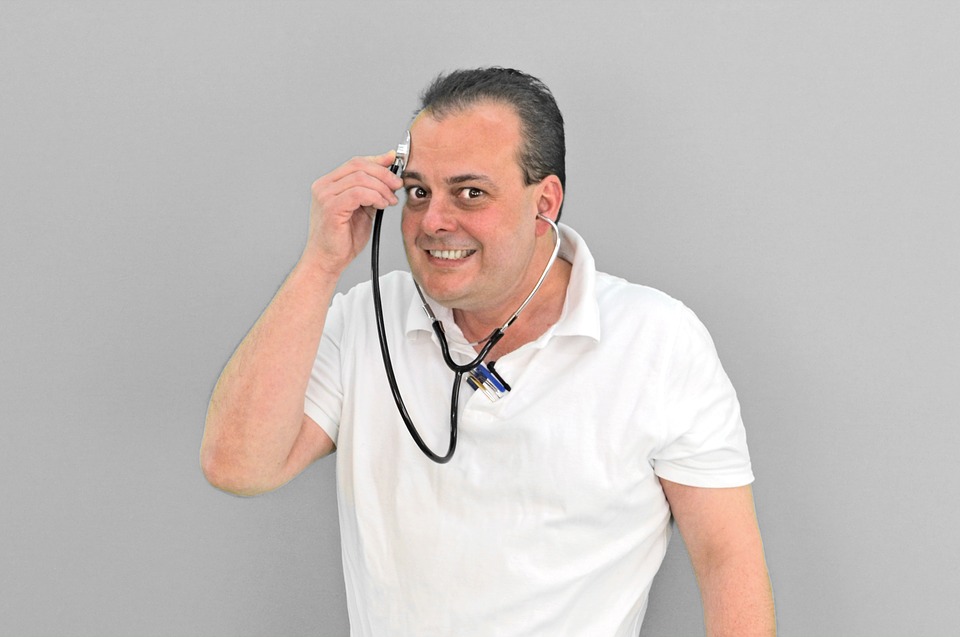A key focus of my blog is Career Discussions and Health/Wellness. The Coronavirus/Covid-19 Pandemic/Crisis has created numerous opportunities in addition to the chaos and damage it has caused. In some ways it has changed the way medicine is administered. The following contributed post is entitled, Traveling Physicians Are Proving A Massive Hit Right Now.
* * *
The world of healthcare is being turned on its head by a public health crisis nobody expected. But it is having a surprising effect. It is leading to the reemergence of the traveling physician.
Physicians who traveled to their patients were popular in the past for all sorts of reasons. A lot of people simply didn’t want to travel to the clinic. It was either too painful or too far to go.
Others felt sick outside of office hours. For them, the mobile doctor was the only option.
Now that we’re amid a modern plague, though, there’s been a resurgence of interest in the concept. Heck, could it actually be a good idea?

New York City is one of the most affected places right now. Currently, the enigmatic East Coast metropolis is attracting thousands of traveling nurses and doctors, all responding to war zone conditions.
There’s a tremendous need for people who can somehow help the city contain the expected 240,000 deaths officials believe will occur if they don’t do something drastic. Physicians are being imported by the bus-load to help tackle the problem.
What’s so unfortunate about the current pandemic is how it is hurting patients from all over the medical spectrum. COVID-19 is displacing regular operations, meaning that heart and cancer patients can’t get the treatment that they need.
Offering Crucial Help In Times Of Need
Currently, travel doctors are offering patients across the country critical help in their time of need. They are bridging the gap between supply and demand as never before. And local hospitals are rushing to adapt their payrolls to accommodate the new supply.

Already, more than 1,000 doctors have made their way to the most-affected parts of the country. More are on their way. They’re required for everything, from testing to helping place people on ventilators.
Their primary role, however, will be in continuing to supply medical care to the old and vulnerable. There are a lot of people who require hospital treatment but daren’t travel because of the risks. Visiting physicians will, therefore, find themselves trying to paper over the cracks in the creaking health system and providing essential services to those who need it.
New York won’t be the only city that demands traveling physicians. Other significant centers will also call out for assistance as the virus spreads and more people become infected. Even rural areas could find themselves profoundly affected, especially if lockdown measures aren’t as successful as they are in the cities.
We’re also seeing a lot of people coming out of retirement to help bolster the numbers on the frontline. Boomers who thought that their careers were over are finding that they’re needed more than ever. And there are thousands of them. Authorities believe that more than 45,000 people will return to the fray throughout the year.
How To Become A Great Travelling Physician
There’s currently a massive need for traveling physicians. And as the virus spreads from one city to the next, that need is only going to intensify. Visiting physicians may find themselves running from one location to another to provide much-needed assistance. Each settlement in the country is going to experience a peak. And so they will need medical personnel from other areas to help them cope.
But how do you become a quality traveling physician? What does it take?
Top of your list of priorities should be bedside manner. As a traveling physician, you’re going to encounter so pretty desperate people, many of whom, you won’t be able to help. The best that you can do is offer them some loving support in their hour of need in the hope that they make it through.
Bedside manners are more challenging to achieve than you might think. You can’t let the exhaustion of the job render you emotionally insensitive. Burnout is not an option. Every time you interact with a patient, you need to recognize that you’re dealing with a complex person with a tremendous life history. You could be serving a great writer, musician, author, or business leader. That person could be the leader in their field or a cherished member of the family. And a vast amount might ride on their continued survival.

Next on your list of priorities should be to recognize that traveling physicians don’t need to work alone. Sure, you might be bouncing between one city and another, but that doesn’t mean you should exist without help.
Every physician, for instance, needs the support of precision lab testing. You can’t go into the field and just guess at the diagnosis. If you want to provide quality treatment, you need accurate measurements. Working with a lab, therefore, can give you the assessment that you need to determine what is wrong with the patient.
If you want to become a world-class traveling physician, you also need a pretty tough constitution. Traipsing around the country administering treatment to patients isn’t always easy. You’re often a long way from home and family. You have to put up with airports. And most of the time you’re sitting down, either on a train, in your car, or on a flight.
Traveling physicians need a strong constitution, as well as strategies that keep them going on the road. As a rule of thumb, you should always check into self-catering accommodation when you can. You don’t want to find yourself living off fast food while you’re trying to administer critical care. And you need to focus on sleep hygiene. Things can all help, like switching off your phone after 9 pm, packing earbuds, and using an eye mask.
So, in summary, embarking on a career as a traveling physician seems like a good idea right now. There’s ample demand for their services in the immediate future. And structural changes in healthcare provision will no doubt mean that we see an enormous difference in patient preference. Why go to the clinic when the physician can come to you?
